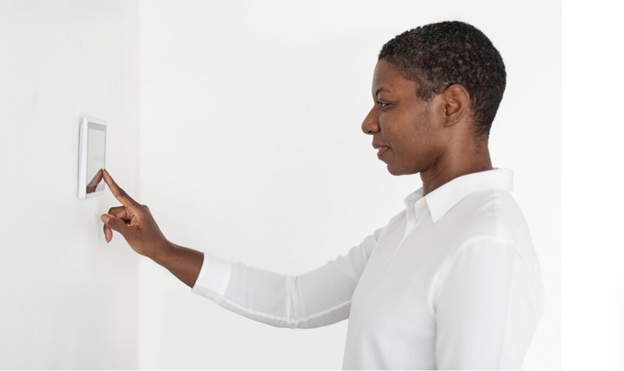Ordinary To Smart Home: Is It Really An Investment?

If I moved into a house with a nest thermostat I would have been super excited to not only make use of all the smart features of that particular device but the fact that I would see a great reduction in my electric bills overtime is probably going to be the best part about having this device installed in the house.
But when it comes to smart devices, people are quick to assume that they might just be expensive. However that is not true – well with some smart devices of course. There are those like that of the Samsung SmartThings smart refrigerators for instance that can start from a price of $1500. So with expensive appliances like these, it raises the question: are smart homes really an investment?
What to Expect From Smart Homes
Here are a few things that you can expect from when switching from an ordinary lifestyle to adopting that of what can be called a smart home.
Home Automation
When installing smart devices around your home, what you come to realize is that slowly everything starts to become automated. Every smart device features its own mobile application and can enable voice control, and also be connected to central Hubs like ZigBee and Z Wave or even Wi-Fi. This is enough to understand that you no longer have to manually control the devices. Through voice control and with the tap of a single button in the smart device mobile apps you can get things done – switch on the lights, turn down the thermostat, unlock the front door, or set a reminder for yourself to bake those brownies for your kid’s football game coming on the weekend.
Similarly these mobile apps also allow for setting schedules for particular devices to follow through, and when connected to any Hub, the Hub is what takes charge of all the controls and serves as a control center of sorts for the smart devices in your home.
Security
A lot of smart devices are good for home security reasons, namely smart cameras, video doorbells and smart locks. How do they work in favor of home security you ask? Well, just as we mentioned above that smart devices feature their own mobile apps, meaning they are connected to our smartphones 24/7. So anytime a door is unlocked, or any object is detected within the camera frame, or the doorbell rings, these devices send real time notifications to our smartphones – keeping us in the loop every step of the way. Each device has more features to it as well but we would explain those in detail some other time.
Energy Efficiency
A smart home means having an energy efficient home – if you install some specific devices of course. Like smart lights include LED bulbs so they consume less energy to begin with, other than having more energy efficient features. In the same way the surest and fastest way to cut back on the energy wastage and your heating and cooling bills would be to install a smart thermostat – probably one of the best smart devices to have been invented!
Smart devices like smart lights and thermostats can include features like motion sensors for auto adjustment of lighting and temperature settings, and their mobile apps only make it easier to have access to the device whether you’re home or away.
Do the Pros Outweigh the Cons?
I wouldn’t say that smart devices have cons, only that there are certain things that homeowners should be aware of before they make the switch to turning their home into a smart one.
Around The Clock Internet Connectivity
If you want all the benefits, and enjoy all the features smart devices bring with them, then your home must have internet connectivity 24/7. That is because smart devices connect to your smartphones and central Hubs through the home internet. If internet connectivity is disrupted, your smart devices would not work as efficiently as they are meant to.
So with around the clock connectivity also comes the issue of seamless connectivity. We use the internet for multiple purposes and of course connect multiple devices to the home Wi-Fi routers. Imagine the load of added devices – how would anything work seamlessly then? For that you may need to invest in strong Wi-Fi routers, like the Google Nest Wi-Fi Router for instance, since it can withstand multiple devices connected at a single time and covers a larger area with great internet coverage.
Price
Prices of smart devices aren’t too expensive, in fact they are quite reasonably priced. But keep in mind that some devices can overlap features so there is no need to buy more of the same thing. For instance if you have the Nest Wi-Fi Point paired with your Nest Wi-Fi Router, why would you get a Smart Speaker since the Nest Point itself IS a smart speaker too.
So is a smart home a good investment to make? Yes of course! But like all things, even such a change would require some sort of adjustments that would have to be made. You would understand once you buy your very first smart device if you haven’t already. And speaking of buying smart devices, you can head on over to www.firstenergyhome.com and browse through their smart home catalogue. Surely you’ll find something worth buying for your home!






